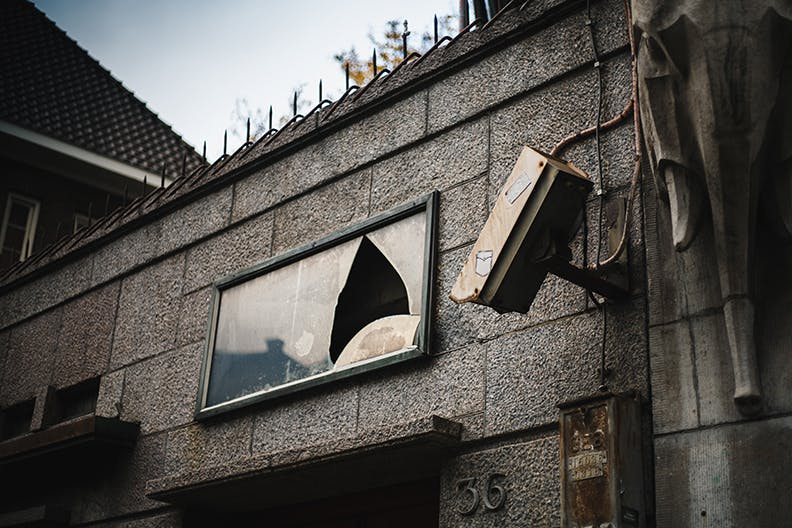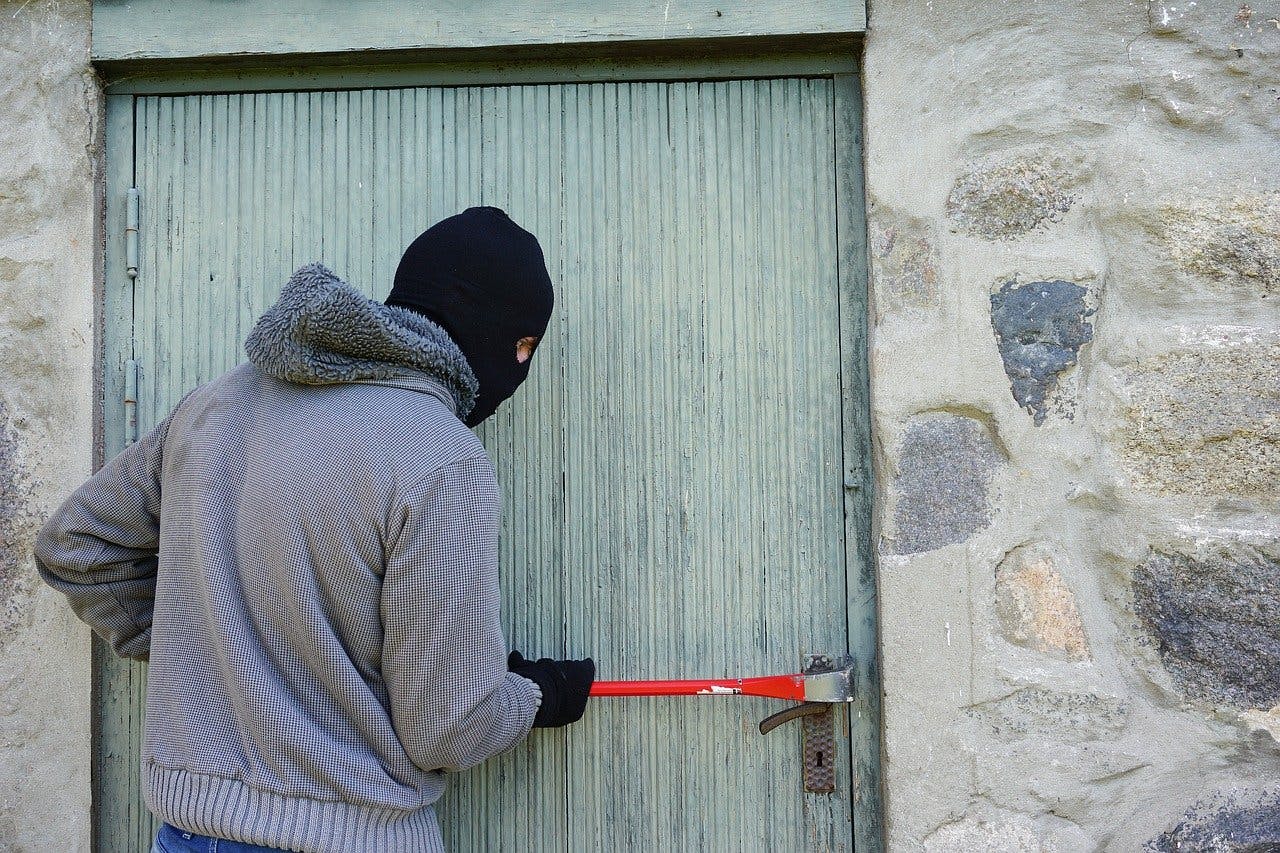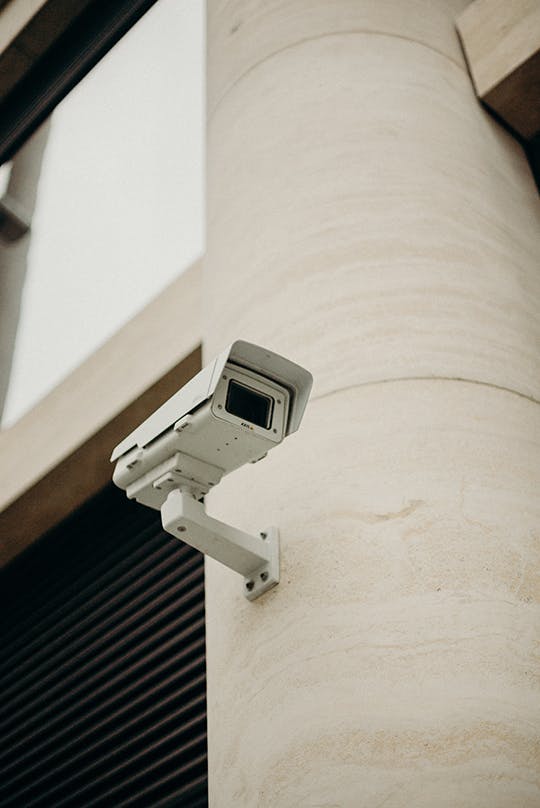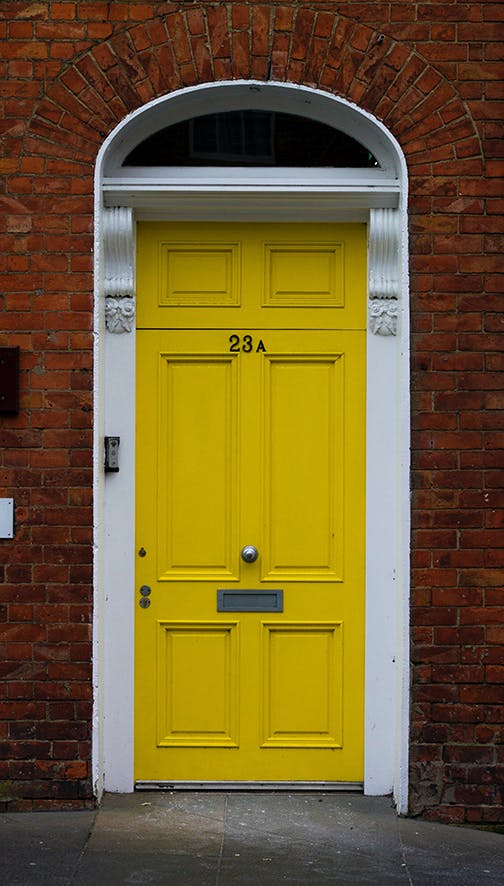
Your home security system sets off false alarms every time a fly enters the room. Is it time for a new alarm system? This article will show you how to tell when and how to replace your existing alarm system.

Do You Need an Alarm Monitoring System?
Answer: Security professionals highly recommend that homeowners and renters install a home alarm system to deter and prevent crime.
Whether you have an alarm system or are considering getting one, you may wonder if they are necessary. Home security systems are branded as the holy grail of security equipment. So, why are they so popular? Do home security systems actually deter criminals?
A 2012 study from the University of North Carolina at Charlotte dove into burglars’ minds to discover what attracted burglars and what deterred them. One of the most important findings was that “close proximity of other people (including traffic, those walking nearby, neighbors, people inside the establishment, and police officers), lack of escape routes, and indicators of increased security (alarm signs, alarms, dogs inside, and outdoor cameras or other surveillance equipment) was considered by most burglars when selecting a target.” This showed that burglars don’t approach homes that have increased signs of security. Homes near police stations, homes in heavily trafficked areas, and homes with dogs outside are less likely to be targeted. Homes with home security devices are the least likely to be targeted.
The study found four main bullet points that clarified how home security systems are effective against burglars:
- Within a broad set of potential target hardening deterrents, alarms and outdoor cameras and other surveillance equipment were considered by a majority of burglars.
- About 60% of the burglars indicated that the presence of an alarm would cause them to seek an alternative target altogether.
- Most burglars would try to determine if an alarm was present before attempting a burglary.
- Among those that determined that an alarm was present after initiating a burglary, about half would discontinue the attempt.

Burglars avoid homes that have home security installed because a majority of burglars are impulsive. “About 12% [of burglars] indicated that they typically planned the burglary, 41% suggested it was most often a ‘spur of the moment’ event/offense, and the other 37% reported that it varied.” Burglars look for targets that will be easy to burglarize and avoid homes that seem like a challenge.
An Idaho news station, KTVB7, interviewed 86 convicted burglars, asking various questions to see how burglars picked their targets. The last question on the survey was, “What is the one thing homeowners can do to avoid being burglarized?” One inmate responded, “Get a camera and make it visible!” Another said, “Put bars on your windows and doors, get an alarm, keep an extra car in the driveway, keep lights, TVs and radios on when you leave your home.” A third inmate responded, saying, “Home alarm, know your neighbor so they can report suspicious people around the neighborhood.” Each of the responses had one main thing in common: all recommended that homeowners install an alarm system.
Having an alarm system in your home is worth it. Hundreds of studies, surveys, and polls all report the same thing—burglars are deterred by home alarm systems. By installing a home security system in your home, you can decrease the odds of burglary by nearly 80 percent.

How Do You Know If Your Monitoring System is Out of Date?
Answer: If your alarm system has frequent false alarms and outdated technology, it’s time to replace it.
One of the most common reasons homeowners update their alarm systems is that they feel their existing security system is outdated. When a security system is out of date, the alarms are more prone to false alarms and are less sensitive. This increases the chances that a burglar will be able to enter the home undetected. Here are five signs that it’s time to upgrade your security alarm system.
1. Prevalent False Alarms
The first and most concerning sign that your alarm system is out of date is the prevalence of false alarms. Alarm systems should be sensitive, but an overly sensitive alarm system might have equipment that isn’t working correctly. When a false alarm triggers, it means that the device thought there was an intruder in the home. For example, if a PIR motion sensor device triggers a false alarm, it means there was a misfire in the device’s sensors. For most homes, false alarms can be dangerous. A false alarm will alert the local authorities to come to the house and put unnecessary stress on the homeowner owner and the homeowner’s family and may even result in a fine. False alarms can create panic and chaos. Because of this, a home security system that is experiencing frequent false alarms should be replaced.
On the other hand, the lack of any alarms is also an issue. If a home security system isn’t sensitive enough, the alarm could miss the burglar breaking into the home. If the alarm doesn’t trigger an alarm when the burglar enters the home, the existing home security system isn’t doing its job correctly. This problem lies within the existing equipment, meaning that the only way to fix the problem is to replace the alarm monitoring service.
To test and make sure that your home security system is working like it’s supposed to, pretend to burglarize your own home. Arm your security system and try to break into your home. If the alarms don’t trigger, it means that your existing alarm isn’t providing the protection that your home needs.

2. Hardwiring
The next sign that your existing security system is outdated is that every alarm is wired. Although hardwired home security isn’t bad, it can be problematic if the entire system relies fully on the home’s power. A wired system works similar to a phone line by connecting to your neighborhood’s landline power. The problem with this type of alarm system is that the burglar can easily turn off the monitoring service by cutting power to the home. According to the UNC study, “About one in five burglars reported cutting telephone or alarm wires in advance.” This means that systems that are entirely wired into the home or rely solely on hardwired electricity are vulnerable to one in five burglars. If your existing alarm system is entirely hardwired, you should think about replacing your alarm.
So, what type of alarm system is burglar-proof? The best alarm system for deterring burglars is a wireless cellular home security system. Wireless systems are important because the burglar isn’t able to cut power to the home and stop the system at a distance. Additionally, because a wireless alarm system is battery-powered, the burglar won’t be able to cut the wires. A cellular system is the most effective way to protect your home because the system doesn’t rely on power from the house at all. A wifi alarm system will still need to connect to the home’s wifi to alert the security company of the break-in. Cellular monitoring, on the other hand, works like a cellular smartphone. Even if the power is down, cellular monitoring will still be able to report the incident to the monitoring company. When upgrading a wired security system, consider replacing it with wireless monitoring.
3. No Expiration Dates
The third sign that your security system is out of date is that you can’t find expiration dates on some of the security equipment. Some security devices will stop working after a certain period of time due to the device’s technology. Many products will have expiration dates visible to ensure that the homeowner knows when to replace each device. The most common products with expiration dates are fire alarms and carbon monoxide detectors. These devices are often integrated into home security systems because they help to protect the home. However, if you can’t find the expiration date on one of these devices, it may be time to replace it.
If a smoke detector is kept past its expiration date, you may be exposing your family to fire danger. Smoke detectors are meant to last between five and ten years. After the device has stopped working, it will no longer trigger accurately during a fire or carbon monoxide emergency. This poses a severe risk for the family involved. In fact, the NFPA reports that three out of five fire deaths occur in homes that don’t have fire alarms installed or the existing fire alarm wasn’t working properly. Homeowners should check their devices carefully and make sure that devices that can expire have expiration dates listed. If you can’t find the expiration date, you should upgrade your alarm system.

4. Lost Contact With Security Provider
Another common scenario that occurs is that the homeowner has lost contact with their home security provider. In this situation, there is no one waiting on the other line if the alarms trigger in the home. The home security company may have gone out of business, sold the alarm company, or simply forgot about the homeowner’s alarm. If any of these situations happen, the homeowner should upgrade their alarms. This situation is most common in older homes with older residents.
5. No Smart Features
The final red flag is that your existing security system is not a smart home security system. Smart home automation is becoming more and more common. It offers a greater range of protection for the homeowner and may include features such as remote monitoring, which benefit the user’s safety. Many home alarm systems still don’t include smart features, which poses a risk to the resident.
Residents need to have either professional monitoring or remote monitoring to have the best protection from their alarm system. Suppose the homeowner has neither professional monitoring nor remote monitoring. In that case, the homeowner could experience a burglary but have no way to report it fast enough for the report to do any good. During a burglary, the first 20 minutes are crucial. If the burglary isn’t reported within the first 20 minutes, the odds of catching the burglar decrease rapidly. In fact, the FBI Crime Reports state that only 13 percent of burglaries are ever solved due to the lack of evidence. Homeowners should take advantage of smart features to increase their odds of catching the burglar.

What Features Do You Need in an Upgraded Alarm System?
Answer: Your upgraded system should include wireless installation, smart devices, professional and remote monitoring, and five-star reviews.
When upgrading your alarm system, the last thing you want to do is end up in the same situation you were in before. Here are the five most important features to look for in an upgraded home security system to help you make a successful transition between your alarm systems.
1. Wireless Installation
As mentioned earlier in this article, having a wireless alarm system increases your chances of staying safe no matter where you live. Wireless alarm systems are difficult for burglars to get around because they can’t disable the alarm from a distance. If the alarm is wired, the burglar can either cut the power or cut the wiring, which can be done without getting within sight of the video surveillance equipment. Having a wireless system increases your protection. Your upgraded alarm should be wireless or (if you need a wired system) have a battery backup.
2. Smart Equipment
Each burglar alarm in your security system should be “smart,” meaning that it can connect to other devices and work remotely. Smart security equipment is made to be more efficient and better equipped for discovering burglars. Having a smart system also opens other doors that ensure your home is protected every hour of every day.
While looking for a smart security system, homeowners should also make sure that they are getting the right equipment. Security professionals recommend that every home have a door alarm on every door leading outside, window sensors on every first-floor window, at least one indoor camera, and at least one motion detector.

3. Professional and Remote Monitoring
Professional monitoring is when the home security company connects to your alarm system and monitors your alarms when the system is armed. If an alarm triggers, the alarm company will contact the police. This is an extremely efficient process ensuring that help arrives at the home five minutes after the alarm is triggered. Professional monitoring is a must-have in home security because it promises the best results and increases the odds that the burglar will be caught red-handed.
Remote monitoring is when the homeowner has complete access over their own system through an app on a mobile device. Through the app, the user can trigger an alarm, disarm the alarm, or watch live video surveillance. Having remote monitoring puts the user in charge and helps to make families feel safer.
4. Affordability
Before committing to a new alarm system, first make sure that the system is affordable for your family. Some alarm companies try to overcharge their systems, making their customers pay over $50 a month for basic security. To avoid this, stay away from extremely expensive alarm systems offering “premium” services. As long as your alarm system includes door and window alarms, indoor security cameras, motion sensors, and professional monitoring, the alarm system is “premium.” You don’t need a premium price tag to protect your home.
5. High Reviews
The final thing that you should look for in your new home security system is high reviews. The customer reviews on an alarm system show the true nature of the alarm company. If the average customer rating is less than three stars, it means that the company doesn’t follow through on their promises. Companies with low star ratings might have bad equipment, dishonest contracts, or hidden fees. Instead, look for alarm companies with over four stars. Companies with more than a four-star rating are often honest with their customers, have quality equipment, and are generally loved by their customers.

How Much Does It Cost to Upgrade?
Answer: Upgrading your alarm system will depend on your existing system and the system you’ve chosen to upgrade.
One of the most common concerns when upgrading is the price. Some companies require the customer to pay heavy fees to cancel their contract if they try to switch companies before the contract period is over. The cancellation fee will vary from company to company. A good rule of thumb is to ask the company about the cancellation fee before signing up, to avoid misinformation or false expectations. If you’ve been with the company long enough that there is no contract, then switching to a new alarm system should be easy.
To switch, simply contact your existing alarm company and cancel the next month’s security. Again, canceling will depend on the type of security you’re using and the company’s policies. You can work with your company’s security representative to determine the best course of action. After canceling, sign up with your new alarm company. Signing up with the new company should be fairly simple, as long as the company is the right fit for your family.
At Cove, the signup process is extremely simple and straightforward. First, the customer can talk to a representative over the phone or create their own personalized alarm system online at Cove’s website. The system will be customized to fit every need that you have. Once the system is complete, the customer can modify it. The system will be shipped to the customer’s front door within the next week.
Once the package arrives contact-free on the doorstep, the customer can open it up and begin the installation process. All of Cove’s devices are wireless and cellular, making it extremely easy for any homeowner to transition to the new system, regardless of which alarm system the customer had been using in the past. Once the system is set up (which takes most customers under 30 minutes to install), the home is ready to be protected.
When you sign up with Cove, the company offers a 60-day trial period to test and make sure that you love the product. If you have second thoughts, you can return it. This shows the pure confidence that the company has in their products. They know their products are the best on the market, and they want their customers to have a chance to test out the products without any pressure. Best of all, Cove is a quarter of the price of other home security companies. Cove’s professionally monitored alarm systems start at $14.99 a month.

Can You Increase the Effectiveness of an Existing System?
Answer: You can make your alarms more effective by locking your doors, leaving a car in your driveway, using a guard dog, and starting a neighborhood watch.
Home security systems are effective against 80 percent of burglars. How can homeowners protect their property from the 20 percent who will still burglarize the home regardless of whether there is a home security system or not? In this section, homeowners can learn how to increase the effectiveness of their existing home security system.
1. Lock your Doors
The first thing that every homeowner and renter should start doing is to lock your doors. Somewhere between 7 and 20 percent of American homeowners leave their homes without locking the doors and windows. Not surprisingly, many burglars are able to break into homes by simply turning the front door handle and walking inside. Burglars will specifically target homes that leave the doors unlocked. Homeowners should lock their doors before they leave the house. If you want even more protection, homeowners can buy smart door locks and install them on all the doors leading outside. A smart door lock is a device that will lock the doors automatically.
2. Leave a Car in the Driveway
Another easy way to protect your home (without spending any more money) is to leave a car in your driveway. Burglars prefer to target empty homes. KTVB7 asked, “What time of the day did you prefer to break in?” One convicted burglar responded, “Between 12:30 pm and 2:30 pm. Anyone that was home for lunch should be gone by then and most kids should all still be in school.” Burglars target homes during the daytime hours on the weekday when most homeowners are away. Other burglars look for homes that have mail on the front porch or overgrown lawns, suggesting that the homeowner has been away for more than a few days. By leaving a car in the driveway, the homeowner makes it seem like someone is always home.
KTVB7 confirmed this by asking, “Would it make a difference if there was a vehicle in the driveway?” According to the answers, almost all burglars would assume that someone is home if there was a car left in the driveway. One burglar said, “Most of the time that is a sure-fire sign of someone being home.”

3. Get a Dog
According to various studies, polls, and surveys, dogs are a great way to keep burglars away from the house. Dogs can be territorial and intimidating. Even if your dog is just a sweet, cuddly puppy, most intruders will assume the worst about the dog, thinking that the dog will attack or bite them if they try to approach the house (whether or not that is the case). If a home has both a dog and a home security system, very few burglars will attempt to break into the home.
However, getting a dog requires hours of training and work. Not every family should get a dog because not every family will take proper care of it. Before adding a dog to your family, make sure that it is something that works in your schedule and your financial budget. Dogs can be time-consuming and expensive. If you think your family is ready for a dog, consider adopting from your local animal shelter to give a lost puppy a new home. As long as you’re ready for a dog, a dog will make a great addition to your family.
4. Start a Neighborhood Watch
Starting a neighborhood watch in your area could prevent burglars from targeting any home within your neighborhood. According to National Neighborhood Watch, a neighborhood watch is “a group of people living in the same area who want to make their neighborhood safer by working together and in conjunction with local law enforcement to reduce crime and improve their quality of life.” The national neighborhood watch also describes it as “homeland security at the most local level.” A neighborhood watch forms when the community decides to come together to provide security and protection for all community members. The neighborhood watch will hold regular meetings to discuss the concerns in certain areas and work with the local police department to provide better protection for every person living in your neighborhood.
Neighbors are expected to look out for one another and to report suspicious activity as soon as the person sees something that doesn’t look right. Having a neighborhood watch will encourage neighbors to be more active in the neighborhood’s protection.
5. Get Close to Neighbors
The final thing that you can do to protect your home is to get close to your neighbors. Once you’ve started a neighborhood watch, you should feel comfortable that your neighbors are watching the streets and looking for suspicious cars and strangers. However, if you don’t know your neighbors, they might not report suspicious activity unless it is close to their home. You can change this by becoming friends with the people around you. If your neighbors know who you are and they know your family, they are more likely to report suspicious activity near your home.
Getting close to your neighbors will also make your neighborhood a less appealing target for burglars. Burglars avoid active neighborhoods where everyone is outside talking to one another. Instead, a burglar will target homes within quiet neighborhoods where everyone is a recluse. To make your home less of a target, make friends with the people who live around you.
